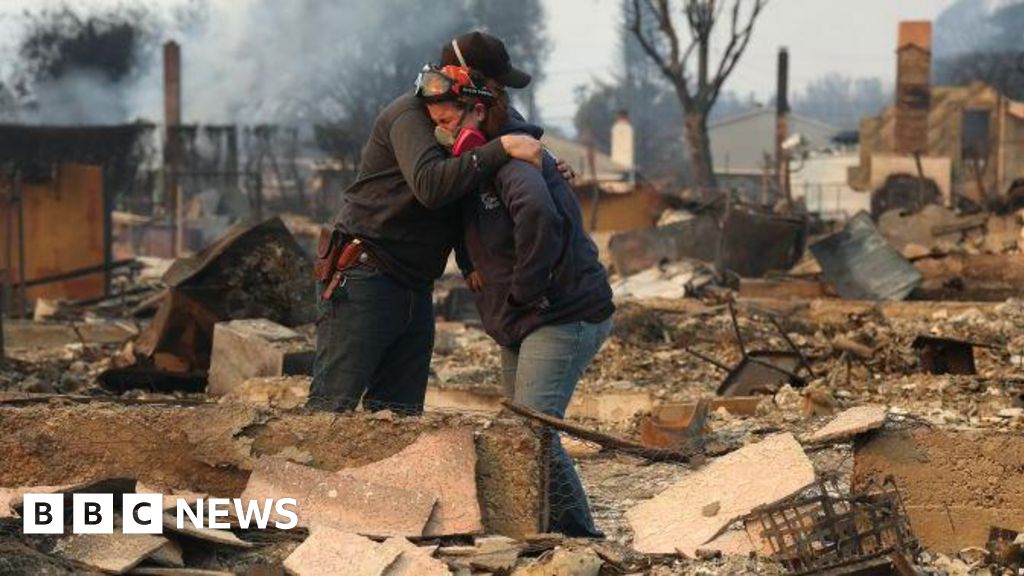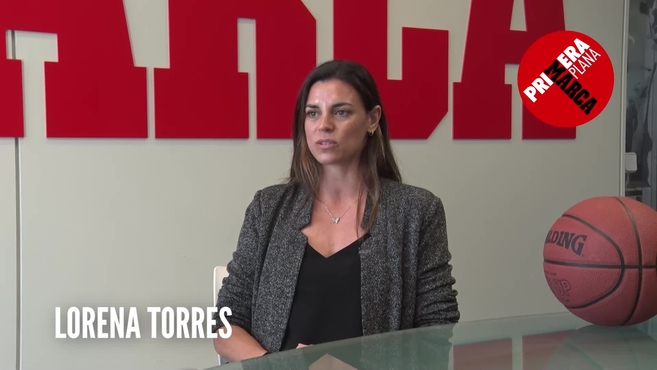/cloudfront-eu-central-1.images.arcpublishing.com/prisa/B5A4IDLE5NVA7PU7DLWUPDQIYU.jpg)
Gestures, help and sanctions. The great Western countries continue to combine shows of solidarity, financial, logistical and military support for the attacked and reprisals against the aggressor, as their policy in the face of the Russian invasion of Ukraine. This Sunday, on a symbolic day to mark the anniversary of the defeat of the Nazis in World War II, the G-7 countries promised to limit their dependence on Russian energy, although, yes, “in an orderly manner”. , an exercise in realism that denotes a certain impotence. And they also approved new sanctions to isolate Russia in areas such as auditing and consulting, the media, and a kind of embargo on industrial equipment that could fuel the Russian war machine.
In the chapter on gestures, the first lady of the United States, Jill Biden, who was with Ukrainian refugees in Slovakia, crossed the border and met with the Ukrainian first lady, Olena Zelenska, in the southeast of the country this Sunday. Canadian Prime Minister Justin Trudeau also made a surprise trip to kyiv. Security reasons invite you to maintain discretion with visitors.
On this Mother’s Day, my heart is with you, First Lady Olena Zelenska, and all of the brave and resilient mothers of Ukraine. pic.twitter.com/tCMXCXhgiY
— Jill Biden (@FLOTUS) May 8, 2022
Trudeau and the rest of the leaders of the G-7, which brings together the large developed countries (USA, Canada, Germany, France, Italy, the United Kingdom and Japan), met at the invitation of Germany, which holds the rotating presidency, for teleconference with the president of Ukraine, Volodímir Zelenski, to address the chapters on aid and sanctions. The G-7 wanted to agree on new punishments before the military parade with which Russia is going to celebrate this Monday, May 9, Victory Day. The celebration commemorates the end of World War II in Europe and the victory over Nazism, and this year the Kremlin is expected to take advantage of it especially in its communication campaign. Moscow seeks to stimulate internal support for the invasion with a propaganda event in which a speech by President Vladimir Putin is scheduled.
In addition to reiterating the condemnation of the Russian aggression and showing their full support and solidarity to Zelensky, the G-7 countries promised to continue providing support to Ukraine and to impose new punishments on Russia.
Among the sanctions, the main objective is to close the tap that pumps oil and gas in one direction and dollars and foreign currency in another. The first sentence of the G-7 statement in this regard seems blunt: “We commit to progressively eliminate our dependence on Russian energy, including eliminating or prohibiting the import of Russian oil.” But that “progressively” and the following sentence of the statement show that Europe is not yet ready to take the step: “We will make sure to do it in an orderly and timely manner, and in a way that gives the world time to secure an alternative supply” .
Join EL PAÍS to follow all the news and read without limits.
subscribe
Disagreement in Brussels
The talks in the G-7 are observed with the utmost interest in Brussels, since they take place in the midst of the preparation of a new package of sanctions by the European Union, the sixth, which wants to forcefully attack Moscow’s energy flank. The discussions focus on agreeing on a total embargo on Russian oil, which would become effective at the end of the year after a transition period. The Twenty-seven are also studying new punishments for companies that provide services to Russia, from ships that transport crude oil to insurers.
The nations of the G-7 have joined the sanctions agreed in Brussels on other occasions, but it has also happened that some countries have decided to take measures ahead of the rest of the partners. This is the case of the oil ban that the United States and the United Kingdom imposed in March, a few days after the beginning of the Russian invasion of Ukraine that took place on February 24.
The negotiations in Brussels ran aground again this Sunday due to the rejection of the capitals that depend to a greater extent on Russian crude. The offers with longer disconnection periods for Hungary, Slovakia and the Czech Republic have so far not been enough to extract a commitment from them. In addition to time, the group, led by Budapest, requires investments in infrastructure.
The European Commission hoped to reach an agreement before or during the symbolic date of May 8, when “Liberation Day” is commemorated in Europe. Russia celebrates it the next day because of the time difference. The signing of the capitulation took place around 11:00 p.m. on the night of May 8, 1945 in Berlin, the capital of the Nazi regime, when it was already May 9 further east.
New sanctions
While waiting to impose an energy embargo, the G-7 countries are trying to fine-tune with other minor sanctions, but aimed at isolating and weakening the Russian economy, its finances and its industrial machinery, especially in relation to the military. . This Sunday, the G-7 has approved new sanctions, which the United States was already ready to announce almost at the same time that the statement of the seven most developed countries was published.
The G-7 announced measures to “prohibit or otherwise prevent the provision of key services on which Russia depends.” “This will reinforce Russia’s isolation in all sectors of its economy,” the note explained. Shortly after, the United States specified that auditing, consulting, management and marketing they were among those barred from working with Russian clients, corporate or personal. This has a double objective: on the one hand, to deprive Russian companies of all the services that are used to operate multinational businesses, but on the other, also, to prevent those firms from helping sanctioned companies or oligarchs to circumvent the measures with their advice. , as recognized by a senior official of the Joe Biden Administration.
The United States has also taken the lead in another of the G-7 agreements: the fight against disinformation. Washington has gone so far as to ban camera equipment, microphones or equipment of any kind from three state channels under the control of the Russian president (Channel One, Russia-1 and NTV), which allow what it calls “the propaganda machine of [Vladímir] Putin”.
Among the initial sanctions there was already a ban on the sale of military equipment to Russia, but now the United States, in tune with the G-7, is taking an additional step and extending export controls to many more inputs: wood products, engines industrial, boilers, motors, ventilation equipment, bulldozers and many other items with industrial and commercial applications. “These new controls will further limit Russia’s access to the components it needs to replenish and supply its military capabilities,” explains a senior US official.
Added to this are new visa restrictions on 2,600 Russian and Belarusian citizens, and more sanctions on Russian bank executives, including 27 directors of Gazprombank, the bank linked to one of the country’s energy giants.
“Our unprecedented coordinated sanctions package,” says the G-7, “is already having a significant impact on all Russian economic sectors – financial, trade, defense, technology and energy – and will increase pressure on Russia over time. . We will continue to impose severe and immediate economic costs on President Putin’s regime for this unjustifiable war.”
Follow all the international information in Facebook y Twitteror in our weekly newsletter.

/cloudfront-eu-central-1.images.arcpublishing.com/prisa/B5A4IDLE5NVA7PU7DLWUPDQIYU.jpg)


